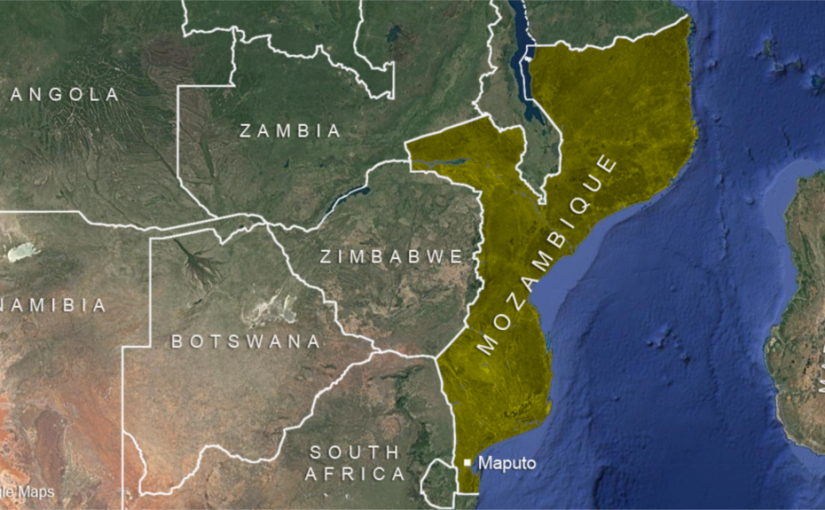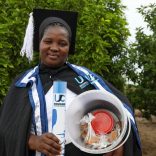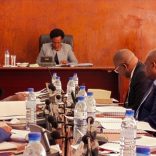JICA Mozambique delegation visits FCM in Campinas, Brazil, to discuss cooperation in medical ...
Cabo Delgado – EU mission blocked, US demands allegiance, Portugal | By Joseph Hanlon

Image: Voa Portugues
- EU security mission blocked as EU stresses internal causes of war
“We are waiting for the green light from Mozambique to send out a security experts mission who have been appointed since November and who are ready to leave. We are just waiting for authorisation,” EU Foreign Minister Josep Borrell Fontelles told the European Parliament Tuesday (16 Dec). “We have problems in Mozambique: we cannot move, we cannot travel around.” He went on to announce that in light of Portugal soon becoming EU president, he had asked Portuguese Foreign Minister Augusto Santos Silva to go to Mozambique as his special representative to try to resolve the problem.
Josep Borrell went on to sharply, and very non-diplomatically, criticise the Mozambique government and stress corruption and the internal causes of the war. “We cannot say that everything that is happening in Mozambique is a simple extension of the so-called Islamic terrorist movement. To a certain extent that is true. But the armed violence in the northern part of Mozambique was triggered by poverty and inequality and by the population of the area losing respect for a state which could not provide it with what it needed. … Mozambique has 3rd largest natural gas reserve in Africa after Nigeria and Algeria. You can imagine that this leads to citizens feeling alienated. It is a rich country and they are mired in poverty. Their expectations are frustrated by their government and because of lack of development.”
“Mozambique is only keeping operating because of massive international aid. It has had serious corruption problems and problems ensuring that there is proper control of companies. We had a financial aid programme and as the result of the corruption the international community reduced its aid,” he noted.
Josep Borrell’s formal title is High Representative of the European Union for Foreign Affairs and Security Policy and Vice-President of the European Commission, which makes him effectively the EU Foreign Minister. That means his strong statements have particular standing. His full statement is on https://audiovisual.ec.europa.eu/en/video/I-200115?lg=EN
Read: Mozambique in MEPs focus – Watch
Meanwhile, Portuguese Foreign Minister Silva in an interview with VoA (11 Dec) said the problem of Cabo Delgado reveals “unfulfilled expectations” and “the dangers of an extractive economic logic [where] you go to a place, you take away the resources with an enormous indifference to the fate of the population and the other dimensions of development”.
Read: Mozambique: EU mission to Cabo Delgado to take place in weeks – Portuguese foreign minister
- South Africa foreign minister says deal with root causes
“Silencing the guns in [Cabo Delgado and elsewhere] requires dealing with the root causes of conflicts, which invariably includes governance deficits, human rights abuses and contestation over resources,” said Naledi Pandor, South African Minister of International Relations and Cooperation, in a media briefing on 14 December. http://www.dirco.gov.za/docs/speeches/2020/pand1214.htm
- Comment: Bilateral or multi-lateral?
“They are not sure if they prefer EU experts or bilateral relations with certain European countries,” said an annoyed Josep Borrell in his statement to parliament. This is one reason why the EU mission has been blocked, he said.
Is this division within the government, or simply saying one thing publicly and another privately? Officially and publicly Mozambique has asked for help from the EU and SADC, and there have been a number of statements from foreign diplomats saying there should be a formal role for SADC, the EU or the UN. But in private Mozambique is telling diplomats they only want bilateral support and do not want a formal role for international bodies, except to help with people displaced by the war.
There is a similar split in the rhetoric. The president and ministers repeatedly say the war is due entirely to foreign terrorism – which they carefully do not identify so as not to offend Muslims linked to Frelimo. But they know they will mainly gain foreign support if stress they are fighting the new global enemy, Islamic State.
Josep Borrell’s statement underlines the problem. Mozambicans know that the EU and UK will want to stress root causes, and also create large and autonomous structures that Mozambique cannot control. That is unacceptable. So all agreements will be bilateral and remain under Mozambican control. Mozambique wants equipment, money, air support, coastal protection and perhaps some elite foreign soldiers acting as “trainers” but accompanying Mozambican troops. In exchange the foreign government could stress that they are combating the global enemy, but would agree not to criticise internal issues like corruption and inequality. jh
- US will help only if Mozambique joins its anti-ISIS coalition
The United States is offering “to equip our partners with the capabilities and tools they need to get terrorists under control”, but it is demanding a high price -“partnering with us rather with others” such as Russia or China. “The United States wants to be Mozambique’s security partner of choice”. And it is specifically a partnership against ISIS, Nathan Sales, US Coordinator for Counterterrorism, told a press conference on 8 December, after his visit to Mozambique.
Read: Mozambique: Telephonic press briefing with Ambassador-at-Large Nathan Sales, U.S. Coordinator for Counterterrorism
“The United States wants to be Mozambique’s security partner of choice” Sales stressed. He then claimed that the US has been “demonstrating across the globe that [it] is the indispensable counterterrorism partner; that the United States brings capabilities that no other country can match. … The United States brings capabilities that nobody else can bring.” The BBC’s Andrew Harding called it “an advertising pitch”.
In Cabo Delgado “what we’re seeing today is a committed ISIS affiliate that embraces the ISIS ideology, that embraces the ISIS tactics and procedures, and that embraces the ISIS vision of a caliphate with territorial control,” Sales continued. Economist journalist John McDermott said that when he was in Cabo Delgado he found that “many Mozambicans and analysts think of it as a locally driven civil war” while another journalist cited the problem of unemployment. Sales denied this: “we don’t see the link between lack of economic opportunity and jihadist terrorist groups like ISIS and al-Qaida.”
One other thing Sales offered was “sophisticated counter-messaging campaigns to really defeat the ideology that inspires people.”
- Private military contracts underline Defence-Interior battle
Two private military contracts reported by Africa Intelligence (3 Dec) point to the way two different military forces are fighting the Cabo Delgado war. The armed forces (FADM) under the Defence Ministry are to receive equipment and training from the South African company Paramount, while the riot police (UIR, Unidade de Intervencao Rapida) under the Interior Ministry are to receive more air and other support from the Dyck Advisory Group (DAG).
This history of this division goes back a decade. The Makonde dominated military seems still caught in its conventional Soviet training of four decades ago, with little anti-guerrilla capacity despite the experience of the liberation war. In the 2013-4 and 2015-6 small Renamo wars in which the Renamo attacked the main N1 road, the FADM largely just shelled the bush area around the Renamo main base, while Interior developed the more mobile paramilitary riot police which largely fought the war.
This continued with the start of the Cabo Delgado civil war in 2017, with the better paid and trained UIR doing most of the fighting. When he began his second term, President Filipe Nyusi did key changes as he named non-Makondes to head Defence and Interior. To reduce Makonde control of the military, he replaced Atanasio Salvador Mtumuke, a Makonde liberation veteran from Muidumbe, Cabo Delgado, as minister with southerner Jaime Bessa Neto, who has a master’s degree in Environmental Sciences and had never been in the Mozambican army. As new Interior Minister Nyusi named Amade Miquidade from Zambezia, but with experience in the liberation war, the Ministries of Defence and Interior, and the security services (SISE). But the two have not cooperated in Cabo Delgado.
Above the two ministers are two senior players, who are both Makonde from Mueda. Alberto Chipande, age 81, fired the first shot of the liberation war, is on the Frelimo Political Commission, and is the biggest Frelimo oligarch and most powerful man in Cabo Delgado. He is also the patron of President Filipe Nyusi, age 61, whose parents fought in the liberation war and who attended a Frelimo school in Tanzania during the war.
Frelimo’s greatest success is that it has never split and never expelled people, no matter how corrupt, so the factions and divisions remain inside and the Party stays superficially united once a decision is reached. So Nyusi’s main task as party head and President is to herd the cats, and keep the nomenklatura satisfied.
Nyusi’s role in keeping the factions satisfied is underlined in Africa Intelligence’s report the Nyusi and Neto personally and together negotiated the Paramount contract with company director Eric Ichikowitz – clearly making sure that it would not offend any group.
Paramount has already delivered two light tanks and five Marauder armoured cars with seven more on Marauders order. And it will provide four Gazelle helicopters and train 15 Mozambican pilots. Meanwhile DAG has also upgraded and is now flying three Mi-8 helicopters.
+ “Resort to private military companies to fight the insurgency in Cabo Delgado: without transparency and with disastrous results” is the title of a 14 December CIP report, in English HERE.
- Portuguese ‘military personnel’ to be involved
Mozambique continues to stress that it has not asked for formal foreign military intervention in Cabo Delgado, and that it wants training, equipment and support in specific areas. But Portugal continues pushing, and succeeded at a meeting between Portuguese and Mozambican defence ministers João Gomes Cravinho and Jaime Neto in Maputo on 9-11 December.
“From the beginning of January a team of Portuguese military personnel will come to work with the General Staff of the Mozambican Defence and Security Forces on the design of the project, which we want to start very quickly,” to support “the formation in Mozambique of rapid intervention forces, special forces, marines, and tactical air control.”
Even the Aga Khan is involved, mediating between Portugal and Mozambique on military assistance, according to Africa Intelligence (11 Dec). Nazim Ahmad, born in Maputo, is seen as the Aga Khan’s senior diplomat. On 9 December he gave evidence to a Portuguese parliamentary commission discussing possible military aid to Mozambique.
The Aga Khan Development Network (AKDN) is extensively involved in Mozambique, including owning the iconic Polana Hotel in Maputo. AKDN moved into Cabo Delgado in 2002 in an attempt to counter what was already seen as growing Islamic extremism. Its agricultural institute in Bilibiza was destroyed by insurgents in January, which could be seen as insurgents attacking the Ismaili wing of Islam.
In the war
- Tightening the noose around Palma and Afungi
The main fighting in the past week has aimed at tightening control of access to the key gas town of Palma and the Total gas installations on the Afungi peninsula south of Palma. So far the insurgents show no sign of attacking either, but rather of creating an island of gas company control in a sea of insurgency.
On 7-8 December insurgents attacked Muite and Ngueo, just 23 km south of Palma and Afungi on the main road linking Palma to Mocimboa da Praia (which has been occupied by insurgents since August). Some of the contract workers on the Total project in Afungi live in these villages. And the insurgents are taking control of the road from Mueda to Palma, with a string of attacks in Nangade district which killed 15 people and destroyed vehicles.
Meanwhile boat traffic has been banned along the coast from Palma south to Ibo. Insurgents control the islands and have been using boats captured from Mocimboa da Praia. So the government declared a free fire zone against coastal marine traffic, warning fishers and traders to stay away, and helicopters have been in action to destroy insurgent boats in the area. (Cabo Ligado 7-13 Dec https://acleddata.com/2020/12/15/cabo-ligado-weekly-7-13-december-2020/)
The effect is to cut off Palma and Afungi, with is no road or sea access, so now only access by air.
Meanwhile the fighting in and around Muidumbe district continues, with villages attacked and changing hands, as well as just to the east. On 15 December a military force trying to reopen the Mueda-Macomia road (N380/381) was ambushed at Awasse and forced to retreat to Mueda. And Chai on the N380 was attacked on 9 December. (Carta de Mocambique, Pinnacle News) This fighting continues to put pressure on Mueda town, further up the hill to the west of Muidumbe.
- Refugees top 560,000
There are now 560,626 displaced people in Cabo Delgado, the Council of Ministers said Tuesday (15 Dec). That is a major increase from the government’s last public estimate in October of 435,000 displaced. Refugees are not just flooding into Pemba, where there are no facilities and informal camps are squalid, but also into Montepuez and near the walls around the Afungi gas development, hoping they will be protected by Total’s guards.
Meanwhile international relief agencies say they are being blocked. Government announced a special visa for humanitarian aid workers, but this does not apply to Cabo Delgado. In any case, apparently no one has been able to obtain the new visa. And agencies complaint they are not being allowed to import medicines, house-building supplies, etc.
Censorship
- Attacks on journalists who report Cabo Delgado
Nasty attacks are increasing against journalists who report on Cabo Delgado and are critical of government, after President Nyusi criticised reporting of the war on 25 November. (See Bulletin 509, 3 Dec)
Tom Bowker, editor of Zitamar, had his press card revoked on 9 December, in an apparently unprecedented action. But the procedure was totally irregular. He was summoned to the government media office (Gabinfo) by phone. As Zitamar is a British registered company, Gabinfo demanded his British press registration, and simply did not believe that Britain (like the US) has no media registration. So they cancelled his press card. Everything was done verbally, with nothing in writing, which is highly irregular. The revocation of the press card has already provoked some diplomatic response – in part because embassies read and use Zitamar.
But it also seems harassment. Zitamar is part of the group publishing Cabo Ligado, the weekly report on the Cabo Delgado civil war. And Bowker recently started The Week in Mozambique, with an emphasis on media freedom issues. (https://www.buymeacoffee.com/pluralmedia and click follow at the top)
Since the Nyusi speech, Facebook attacks have increased from a group that was once the G40 attack dogs savaging the critics of Armando Guebuza when he was president, and have become the praise singers of Nyusi.
Lenon Arnaldo cited the Nyusi statement as he led an attack on a Carta de Moçambique journalist Omardine Omar, accusing him of “lying/misleading news”. Comments on the Facebook post included these from “Alen Maia”: “We will deal with your threats to the security of young Mozambique. Lower the volume of your propaganda against state security … Omardine Omar: If you suffer an accident, the country will not notice you missing. As a terrorist you are aware of this. We know how to deal with terrorists.” https://www.facebook.com/juliaobento.arnaldo.92/posts/979745029219565
Leading praise singer Egidio Vaz attacked Bower: “Tom, go home. This is not your country. Why do you insist on staying in a country just to profit by selling lies and misery? Go to your country, where everything’s good. Work there. Wouldn’t that be better?” https://www.facebook.com/egidiovaz/posts/2985882524972905 Lenon Arnaldo went on to attack Bowker for having “cheated everything and everyone.”
The attacks also included false information. Omar was accused of a conviction for unpaid debts (someone of a different name) and Zitamar of not being a registered company in the UK (in fact listed on the Companies House website as a “news agency”).
Juliao Joao Cumbane went on to attack Carta editor Marcelo Mosse for defending Bowker: “Freedoms of the press and expression have limits. Mozambique is a sovereign state. Combating terrorism in Cabo Delgado is our task, we Mozambicans.”
These Facebook attacks on Mozambique media set an important agenda. Journalists and commentators first attacked on Facebook have been beaten and shot. The offices of Canal de Moçambique were destroyed in an arson attack in August.
(Zitamar has identified Egidio Vaz as the man behind the Ministry of Defence supporting website http://defesamoz.info/. But in a note to me on 11 Dec, Vaz denies this. jh)
- Microsoft blocking this newsletter
The previous issue of this newsletter, number 509 on 3 December, was blocked by Microsoft Office 365 (recently renamed Microsoft 365). The newsletter is distributed by a mailing list from my university, the Open University (OU). The actual sending out is done by Janet, a high-speed network for UK research and education. When the OU sends my mailing to Janet, it passes through Office 365, which uses algorithms to censor unacceptable content. No one is told. The OU found out when I told them and I found out when readers complained that issue 509 was blocked to some, but not all, subscribers. And we cannot find out why.
Office 365, released nine years ago, was exactly designed to centrally take over tasks previously done locally, for example the OU sending to Janet. So what had been run entirely by UK universities now runs via Microsoft.
Algorithms (and machine learning) are constantly affecting out life, from deciding how long we wait on the telephone to whether we get insurance or are shortlisted for a job. And we want them to block Facebook and Twitter posts that encourage terrorism, are misogynistic, and so on. But they don’t work very well, and block my newsletter, perhaps because it talked too much about the Cabo Delgado civil war and an intervener which is safer not to name here.
The issue is the total lack of governance. For corporate accounts we legislate on audits and audit trails to be able to do forensic audits. But there is no governance system for algorithms and machine learning – no audits of the decisions being taken and whether we think they are correct.
An excellent book on the problem is Cathy O’Neil’s Weapons of Maths Destruction. And there was a very good long article in the Guardian “Franken-algorithms: the deadly consequences of unpredictable code” by Andrew Smith. https://www.theguardian.com/technology/2018/aug/29/coding-algorithms-frankenalgos-program-danger
So for the moment, there seems nothing to do but try to second guess the algorithms and see if this newsletter gets though. jh
The censored issue 509 is available on https://bit.ly/Moz-509
Read: Cabo Delgado: Roots of violence, land grab, foreign troops – By Joseph Hanlon
By Joseph Hanlon













Leave a Reply
Be the First to Comment!
You must be logged in to post a comment.
You must be logged in to post a comment.